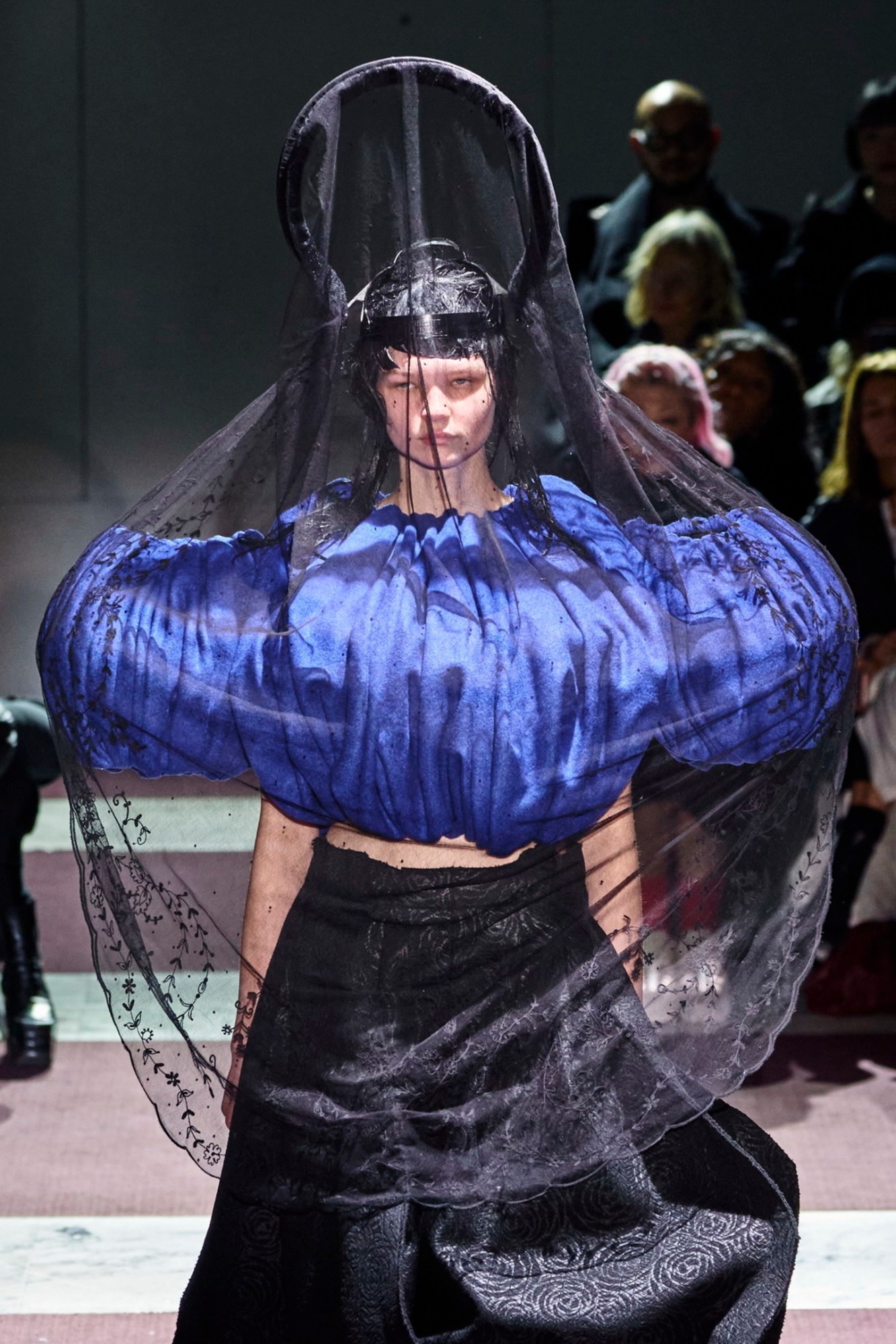“Is it not impossible to make something completely and utterly new, since we are all living in this world?” asked Rei Kawakubo as an explanation of her latest collection, titled ‘Neo Future’. Of course, there’s nothing new under the sun. Everything can look like something else and fashion is nothing if not a perpetual swinging of pendulums; things from the past repackaged as suggestions for the future. Yet Rei has always been a designer who challenges herself to create something truly new and as a result, her work feels timeless. Sometimes it is so futuristic that it doesn’t seem like clothes for modern human bodies at all, but more like sci-fi garments for an evolved species. And though the future is essentially the crux of fashion — we’re looking at collections designed to be sold in six months’ time — Kawakubo’s counterparts often seem to be living in the past. So another question worth considering: when does the future even start? If the future starts as soon as the past ends, then it means we’re in it right this second. Or did the future already begin in the past?
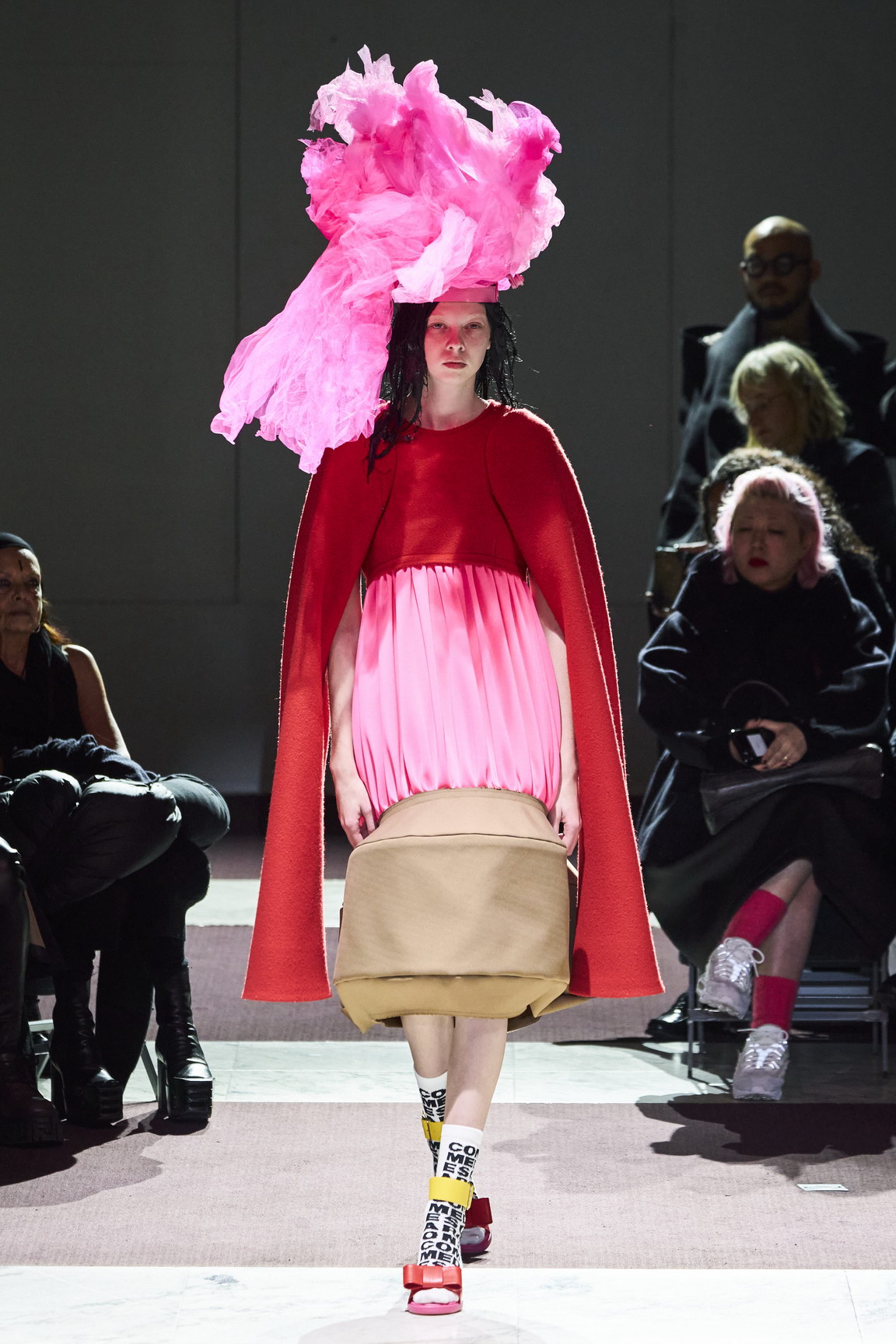
It certainly seems so at Comme des Garçons, where there were references to Kawakubo’s own archive, whether that’s the ‘lumps and bumps’ of SS’97, the bridal veils of AW’05, the two-dimensional shapes of AW’12, or the cylindrical bubbles of AW’16. It all looked just as relevant and thought-provoking as it did when it was first shown. This time some of it came with candyfloss froths of tulle, others with grand lace mantillas. Some looked like brides or springtime flowers, others looked like funeralgoers and caged ghosts. Rei also offered the work of Syd Mead, the neo-futurist concept artist and industrial designer who worked on Blade Runner and Aliens, as a reference. He was the architect of the sci-fi look in cinema. And if it puts things into perspective, the future in Blade Runner was set in 2019.
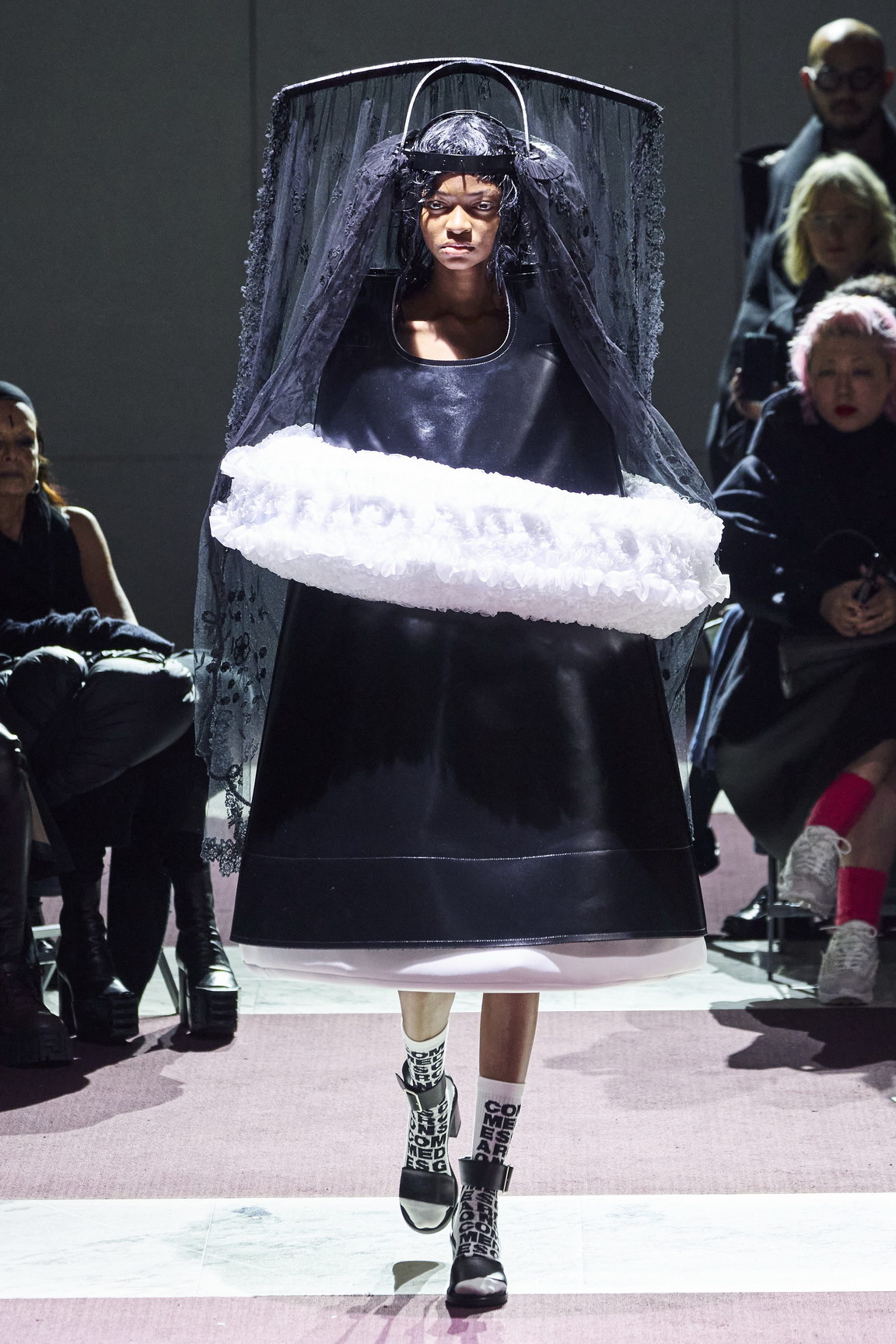
One of the most incredible things about Rei Kawakubo and her ever-expanding Comme des Garçons universe is that it’s a home for women who want to live unconventional, modern lives. It celebrates the women who have historically been on the fringes of society: witches, crones, spinsters and renegades. It gives them clothes that they can’t find anywhere else, and therefore a voice on the catwalk. It offers women something modern, something so far removed from the usual nostalgic fashion fare (even if there are nods to historicism) and typical body-conscious silhouettes. Instead, it completely reimagines a woman’s body, lumps and bumps and all. It celebrates deformities, offers ironic commentary on expectations of women (cleavage-enhancing bras, anyone?), reconstructs the maternal figure and exaggerates the protruding curves of the female anatomy. It forced us to question assumptions of female beauty and notions of what is sexy or even grotesque — and why that is. Comme des Garçons is a matriarchy.
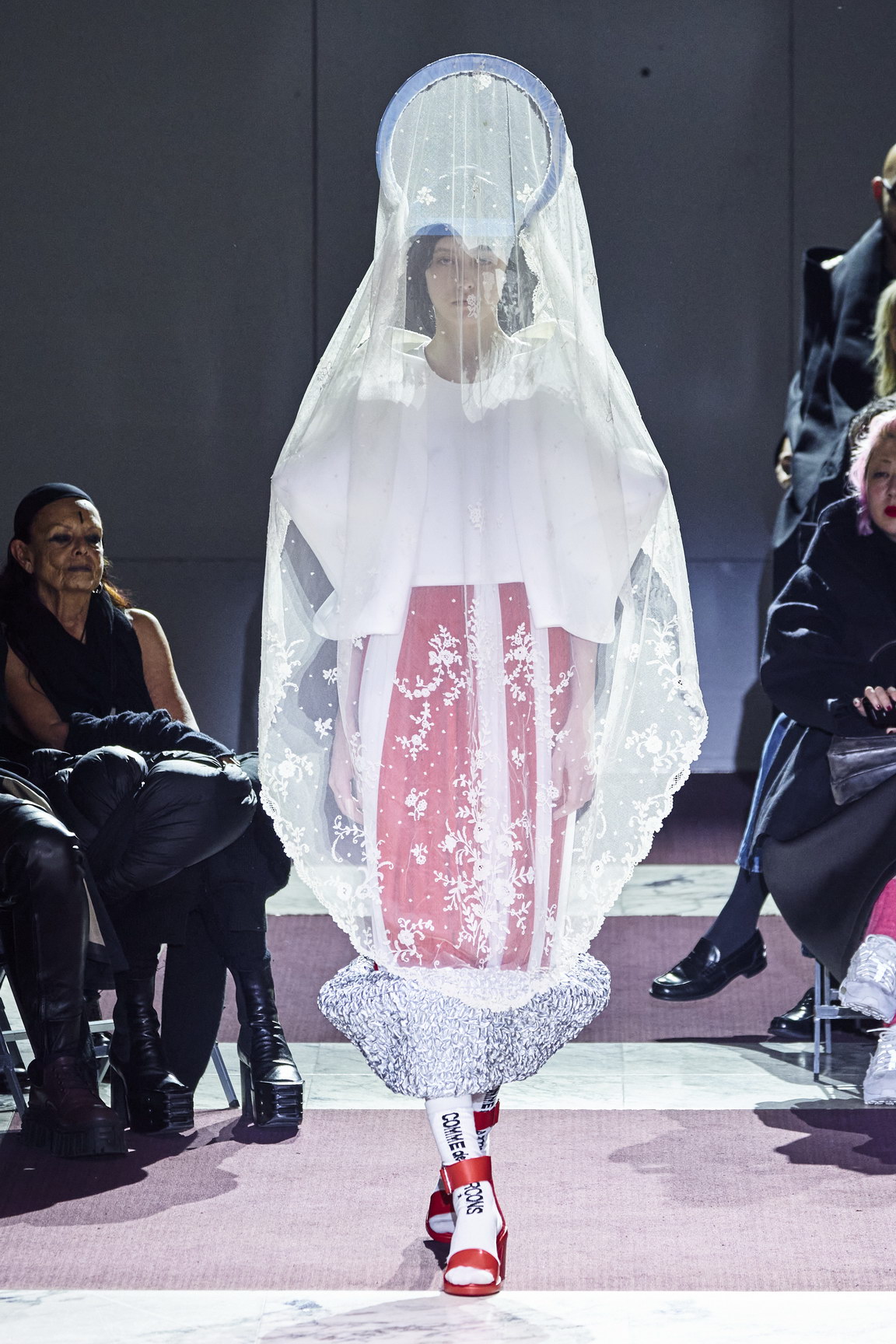
Each one of the 20 looks had its own soundtrack, as though these were individuals and not just a vague cross-section of women. That seems like a futuristic idea of femininity in itself, feminist by nature without having to market it as such. The idea that women can be united by a vision, but dance to the beat of their own drum — be that Mozart or heavy metal. Sometimes they mourn, other times they fall in love. Rei understands that. Her collections are salvation and sanctuary from whatever society says otherwise.
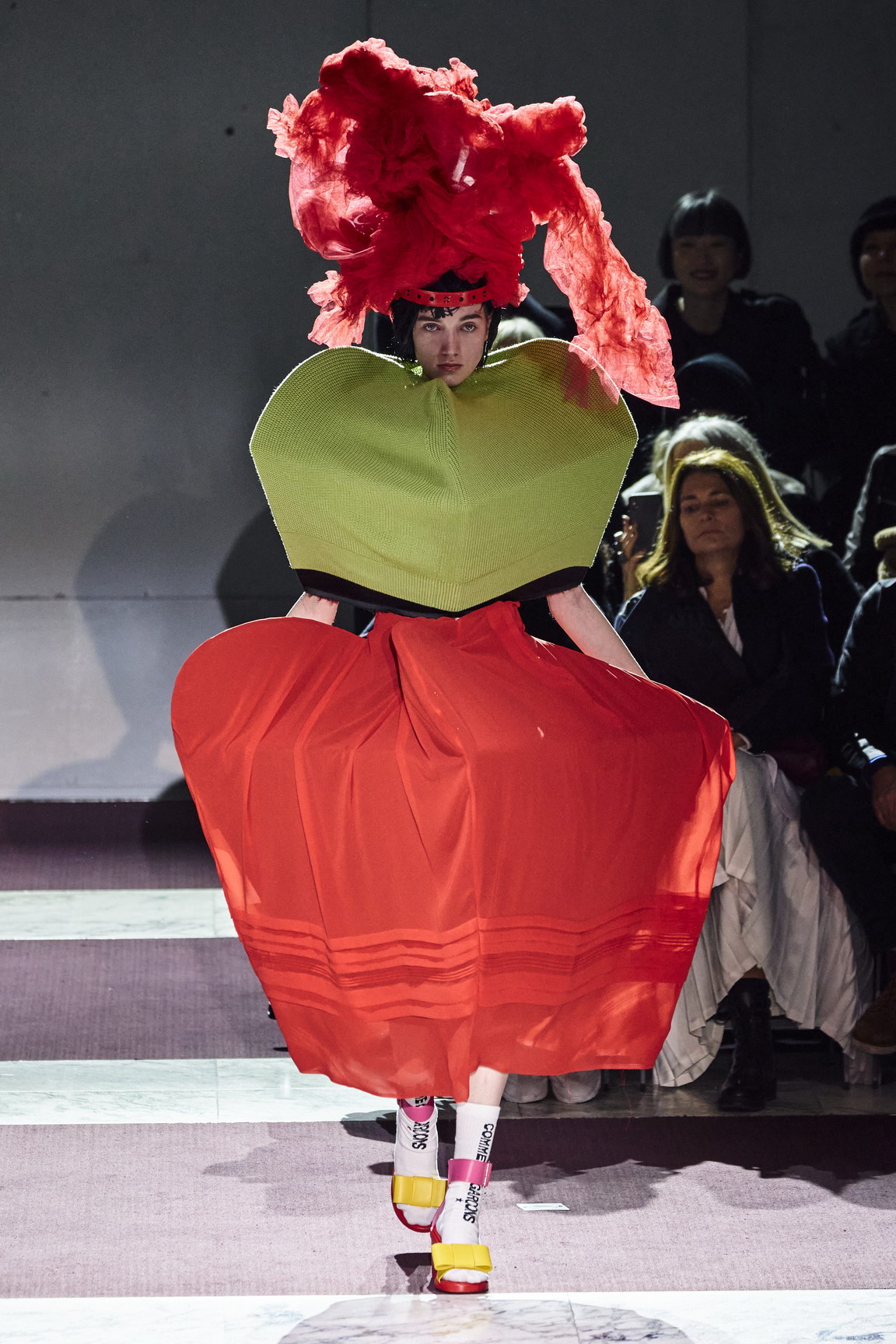
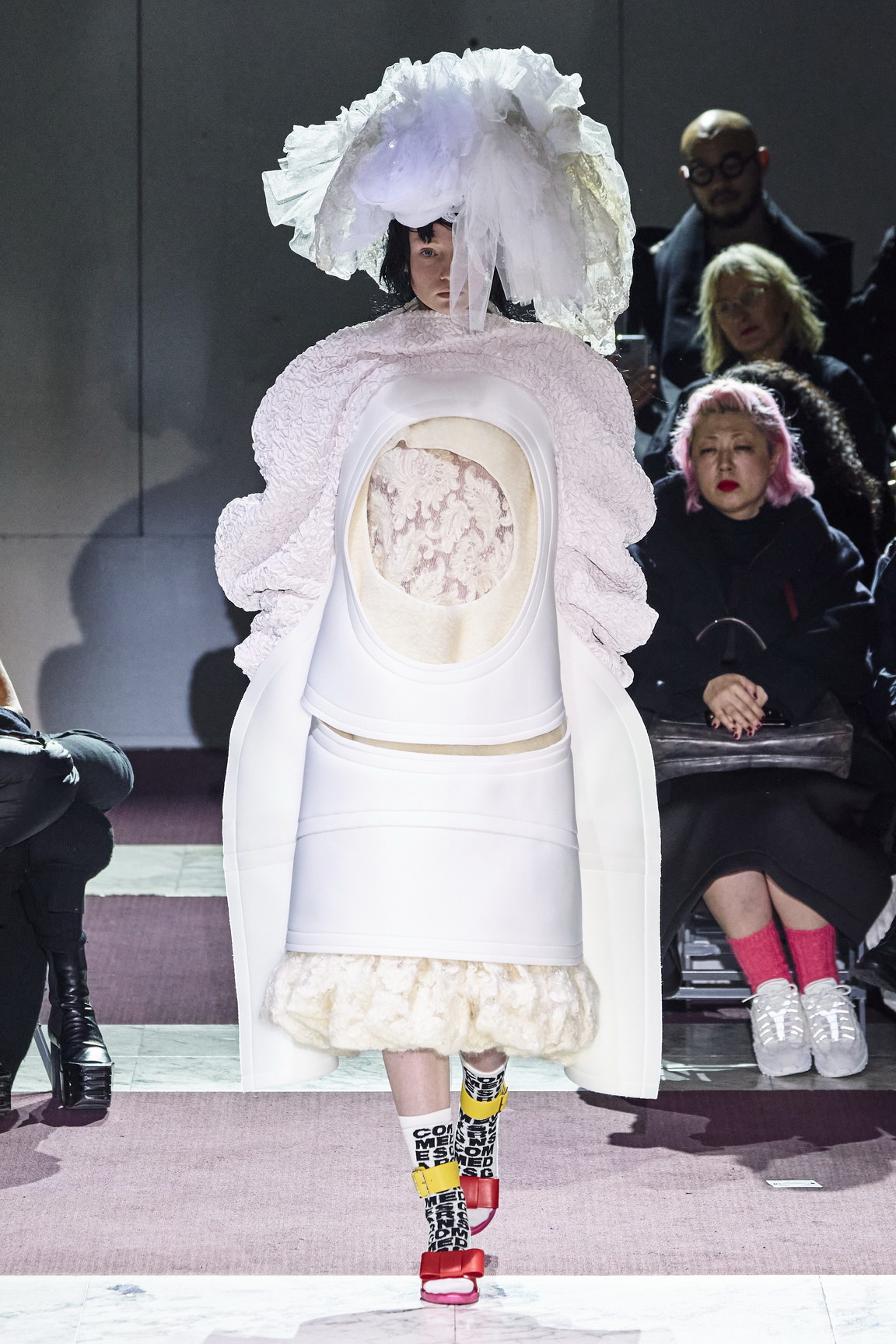
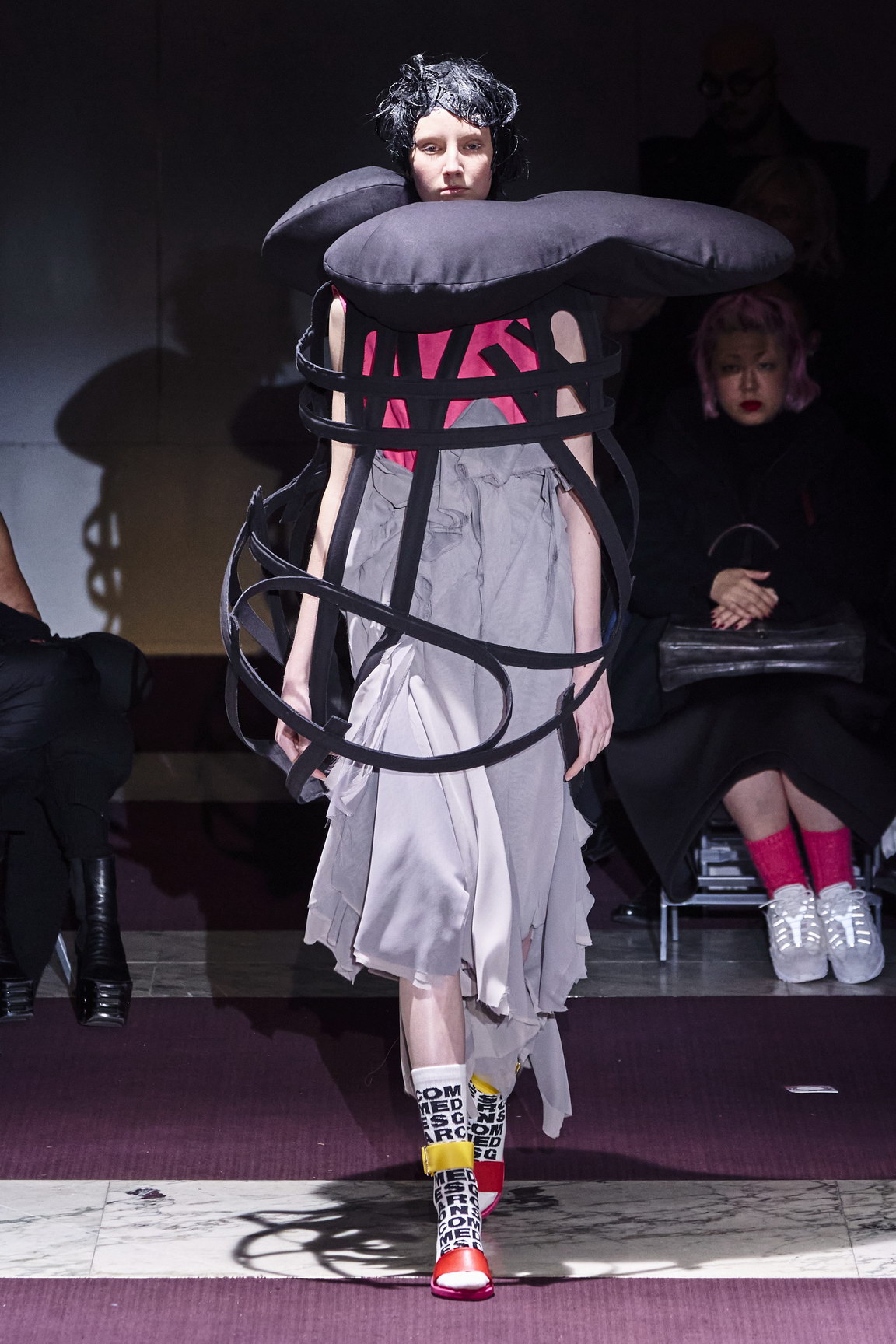
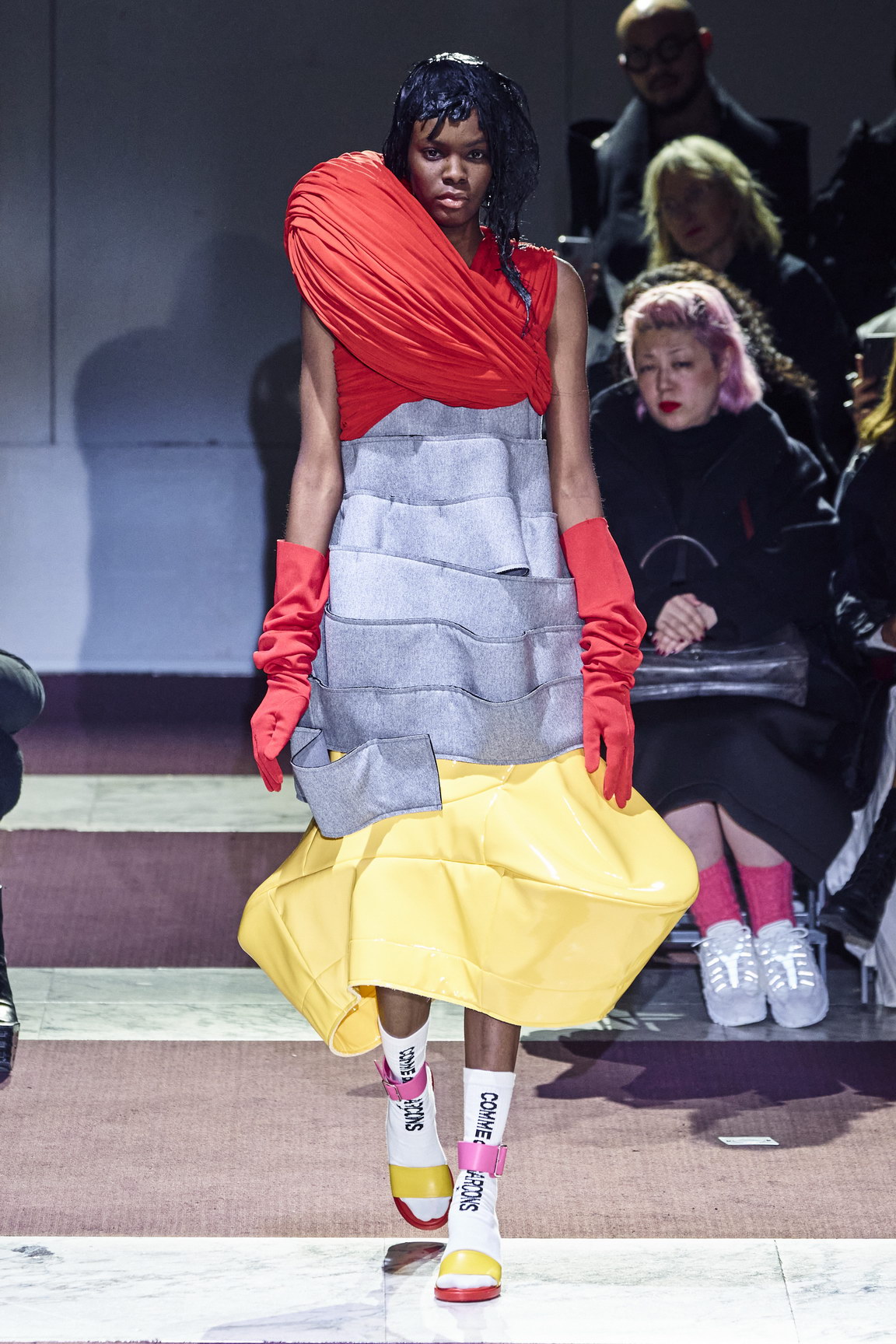
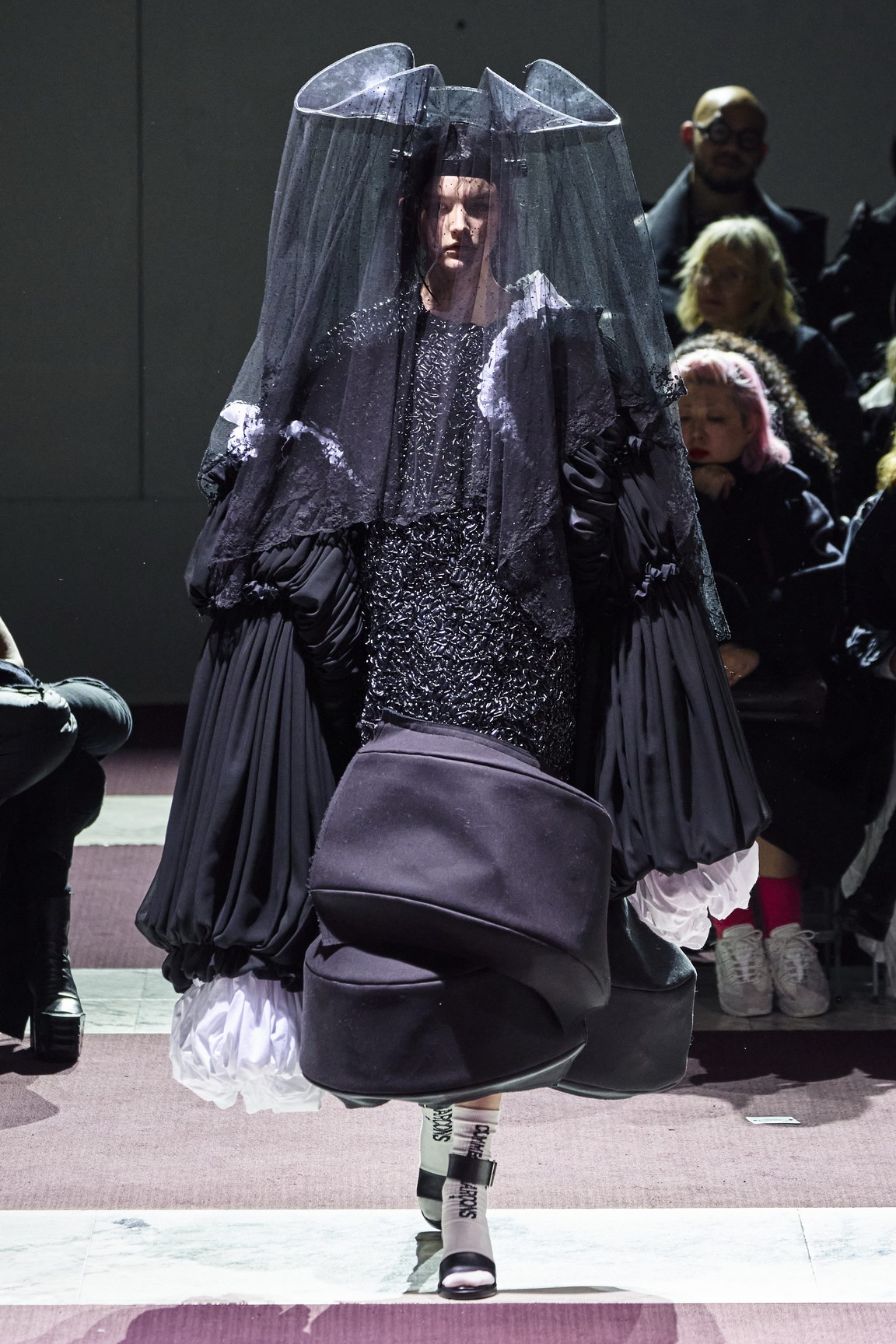
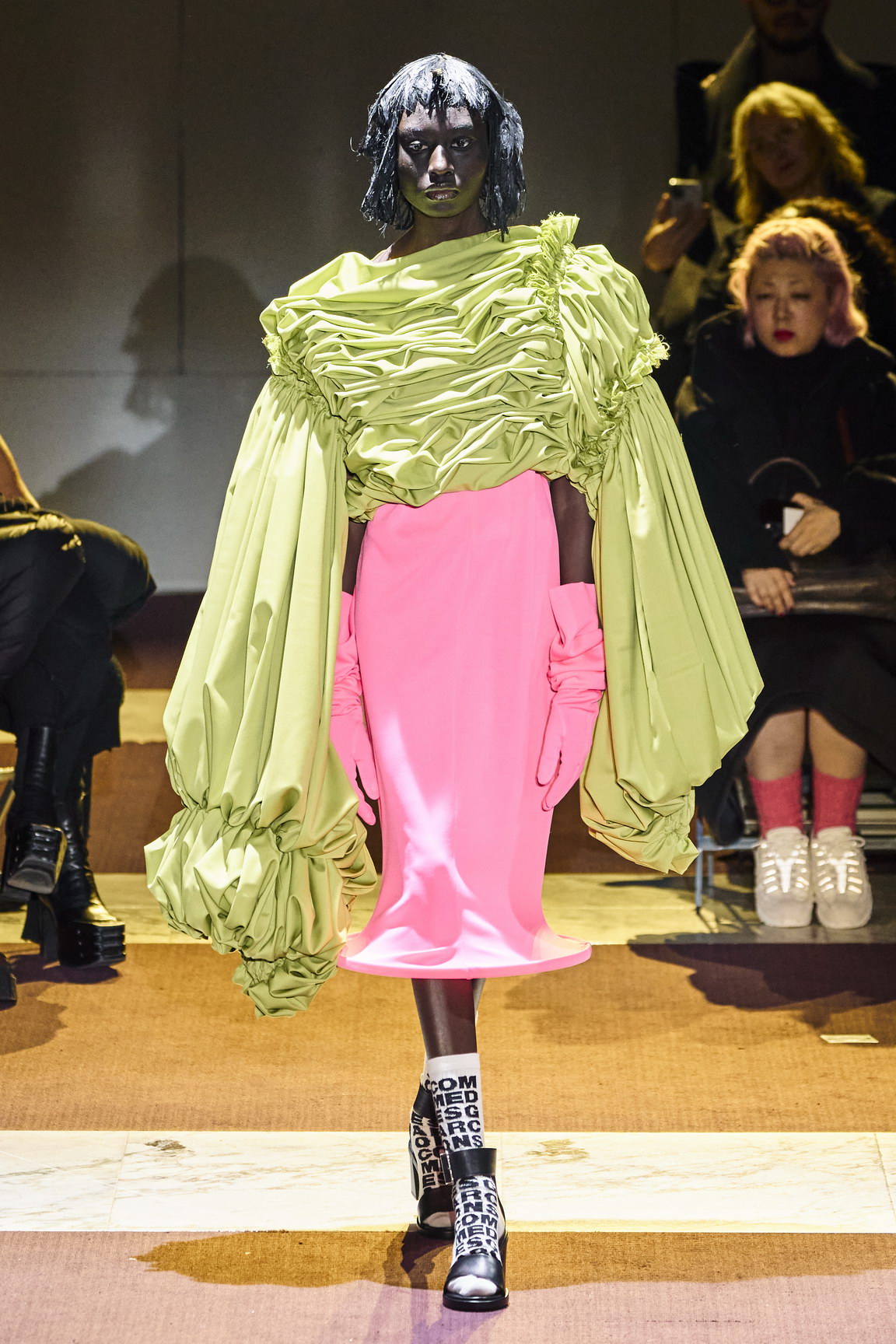
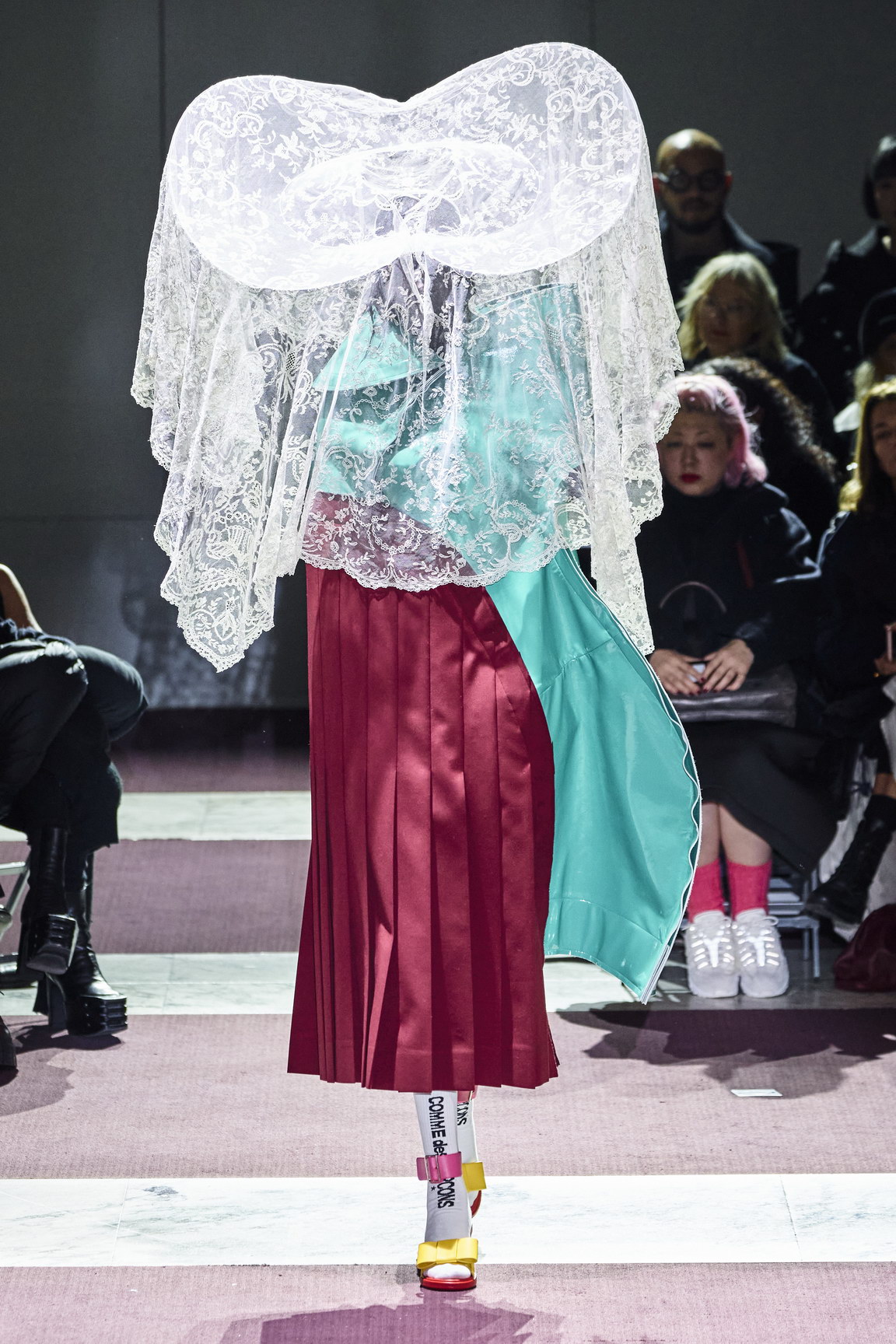
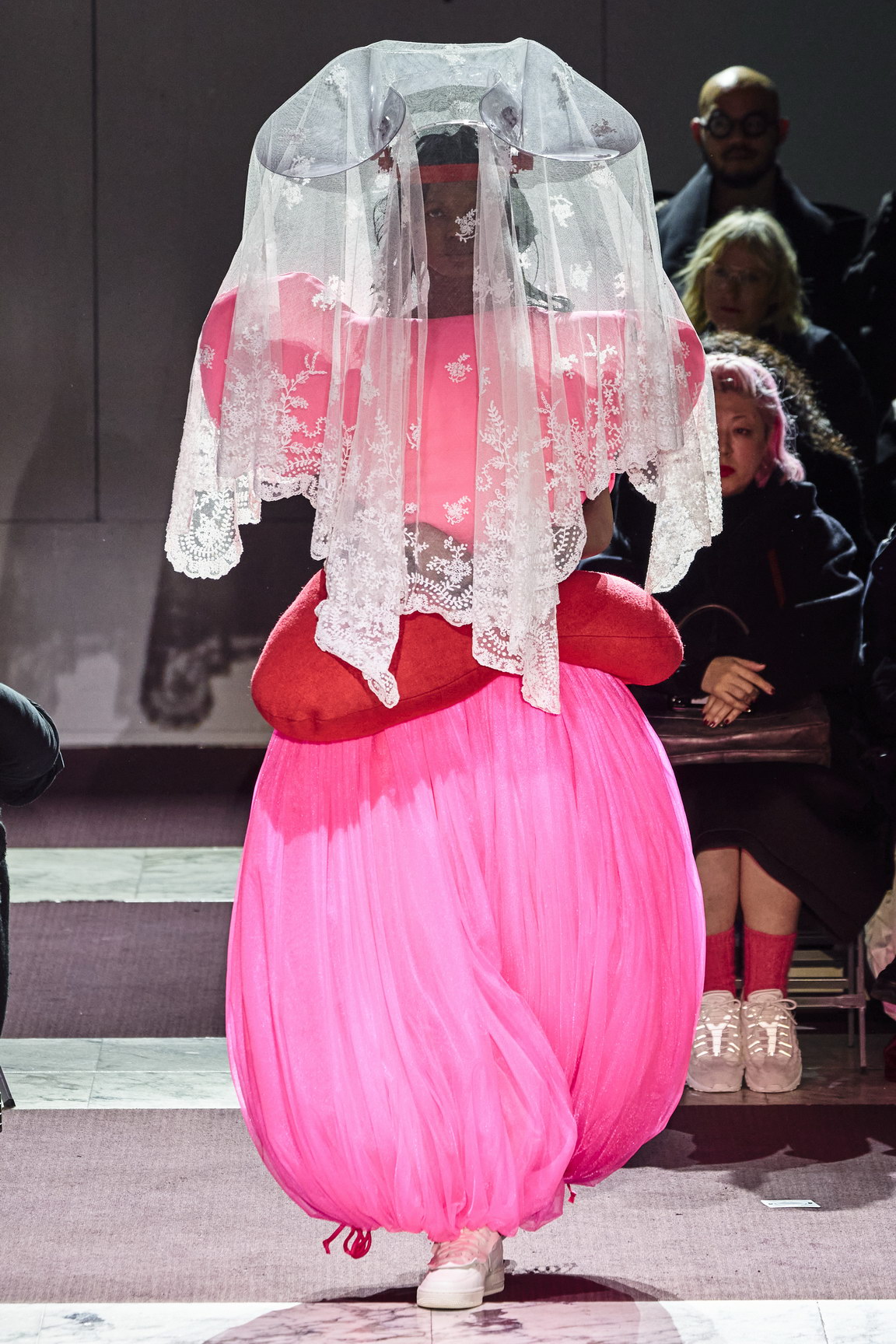
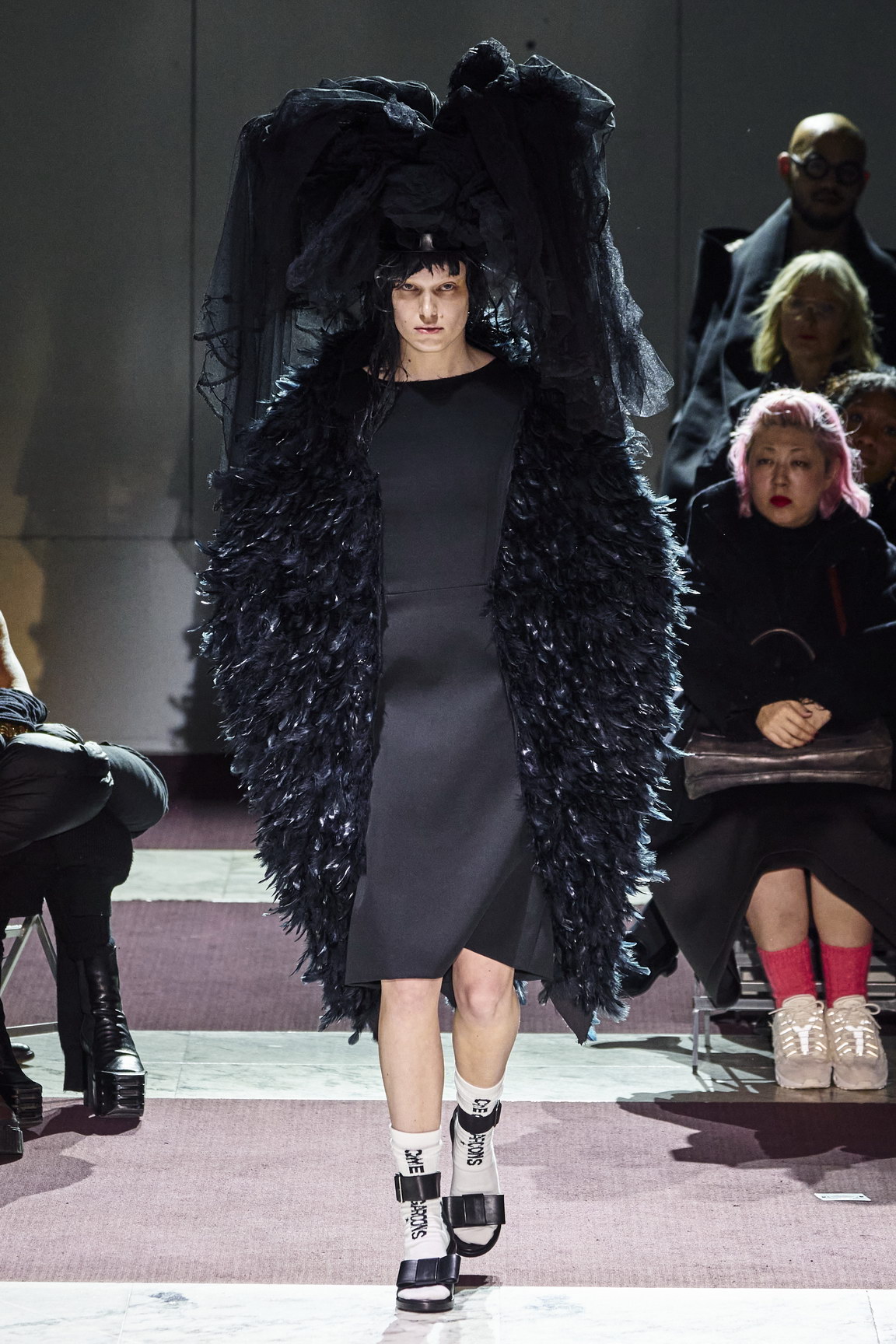
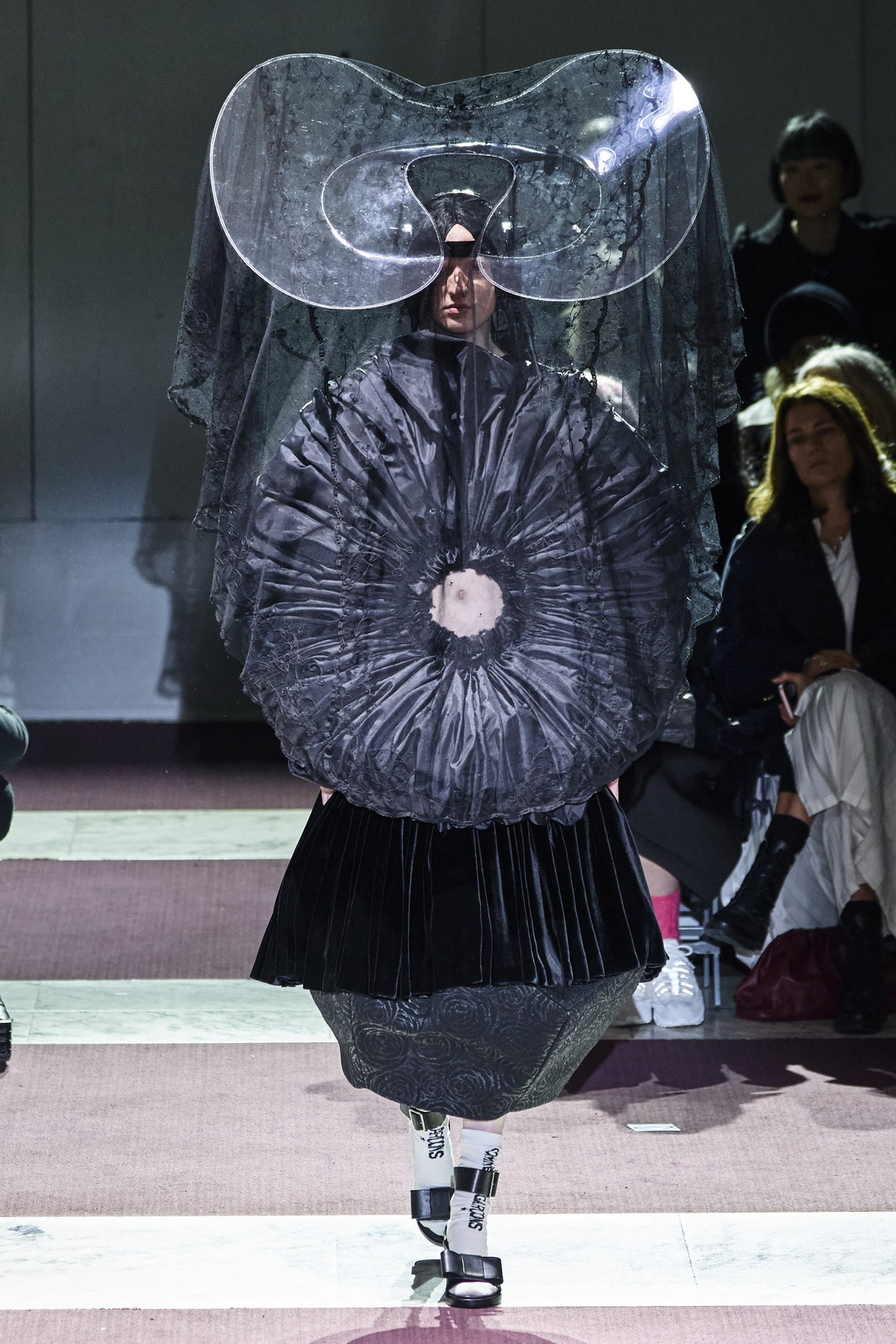
Credits
Photography Mitchell Sams
